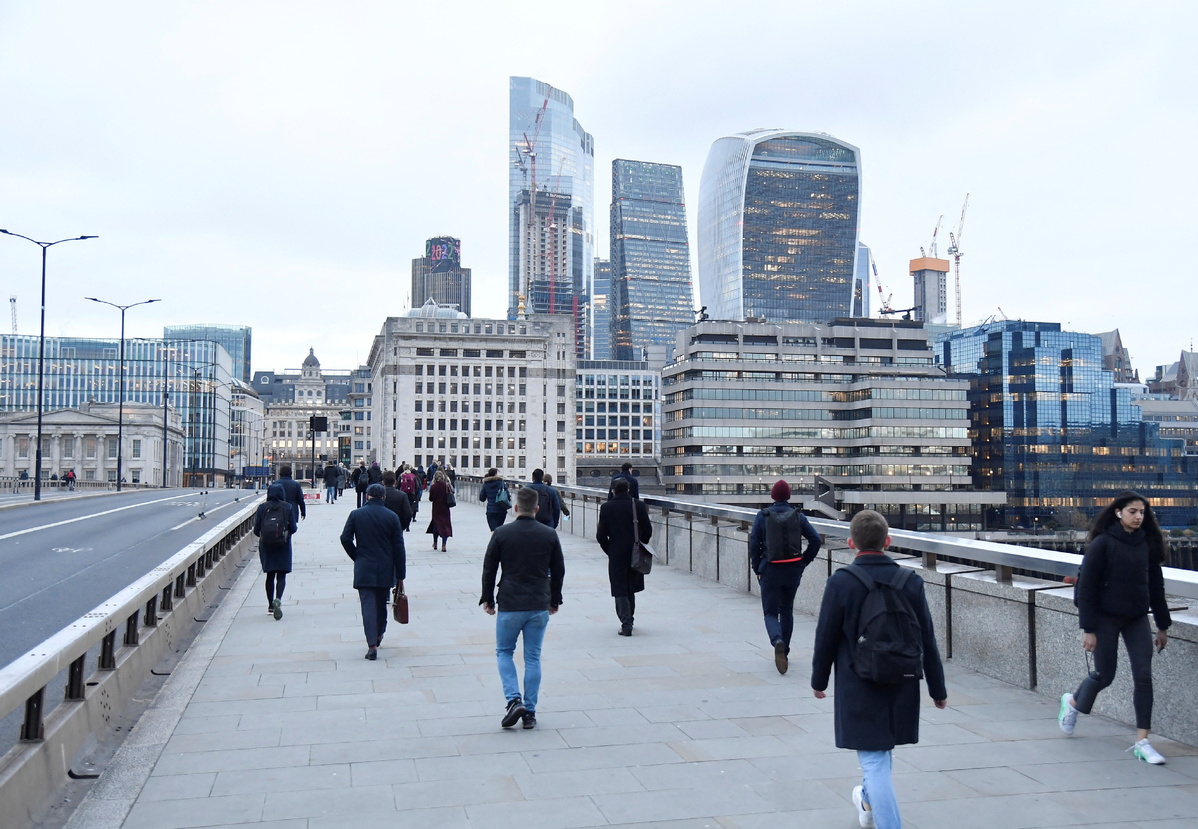Shop price inflation adds to financial burden
By Julian Shea in London | chinadaily.com.cn | Updated: 2022-02-02 23:18

Rising global energy prices, supply chain problems, increased shipping costs, and worker shortages caused by the pandemic and Brexit are all being blamed after new data showed shop price inflation in the United Kingdom was at its highest rate for nearly 10 years.
The BRC-NielsenIQ price index showed shop price inflation had risen from 0.8 percent in December to 1.5 percent in January, with non-food items such as furniture driving much of the increase, and landing another blow on consumers already struggling with wider cost of living challenges.
"In particular, furniture and flooring saw exceptionally high demand leading to increased prices as the rising oil costs made shipping more expensive," said Helen Dickinson, chief executive of the British Retail Consortium. "Food prices continue to rise, especially domestic produce, which have been (hit) by poor harvests, labor shortages, and rising global food prices."
The situation was only likely to get worse, she admitted, saying it would be "impossible" for retailers to avoid passing on increased costs to consumers, no matter how hard they try to make savings.
"As commodity prices, energy prices, and transportation costs continue to rise, it is inevitable that retail prices will continue to follow in the future," she added.
The inflation rate for fresh food was slightly down, at 2.9 percent for January as opposed to 3 percent in December, but it still remained above both the six and 12-month average growth rates.
Mike Watkins, NielsenIQ's head of retailer and business insight, warned that, with so many other financial concerns at the moment, price inflation was likely to put people off unnecessary spending.
"The surge in energy and travel costs is now impacting disposable incomes and is likely to dent consumers' willingness to spend," he said. "NielsenIQ research this month shows nearly a half of all households are saying that their most important concern at the moment is the rising cost of living."
Timco, a company that supplies the construction industry, told Radio 4's Today program its costs had rocketed during the last 18 months, fueling the rise in prices customers have to pay.
"Back then, the cost of shipping as a percentage of an overall product might have been low, a single-digit percent, now I would say it's somewhere between 20 percent and 50 percent of the pricing," said the company's finance director, Alex Stephens. "We are currently bringing in containers from the Far East where the shipping cost is pretty much the same as the cost of the materials that we are bringing in. To be honest, nothing has gotten any better. If anything, things at the moment are getting worse."
With overall inflation at its highest level for almost three decades, the Bank of England is expected to raise interest rates on Thursday, for the second month in a row, to try and bring it back under control.
























